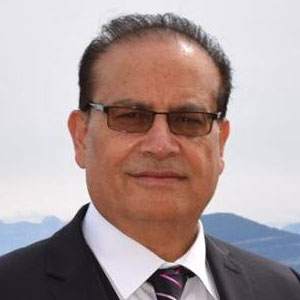The fascist Modi regime and its brutal and heartless security forces use rape as a weapon of war and a means to intimidate, subjugate, and instill dread in the populace of Indian Illegally Occupied Jammu and Kashmir (IIOJ&K).
The use of this horrifying tactic demonstrates the depths of their cruelty and their deliberate strategy intended to break the will of Kashmiris demanding their inalienable right to self-determination guaranteed to them by the United Nations Security Council.
According to the International People’s Tribunal on Kashmir (IPTK), since the beginning of the Kashmir conflict, over 20,000 women have been raped, gang raped, violated, or sexually assaulted. The Kunanposhpora mass rape, the double rape and murder in Shopian, and the rape and murder of a minor girl in Kathua illustrate the brutality of the Indian forces deployed in the illegally occupied territory.
Asia Watch and A-Division of Human Rights Watch Physicians for Human Rights reported in their volume-5 issue-9 titled “Rape in Kashmir, A Crime of War” that since January 1990, Indian Illegally-Occupied Jammu and Kashmir (IIOJ&K) has been the site of a brutal conflict between Indian security forces and freedom fighters demanding accession to Pakistan. Instead of identifying the root cause of this multidimensional conflict and implementing political and conflict resolution measures, India has pursued a policy of repression, primarily through Central Reserve Police Force (CRPF) and the Border Security Force (BSF) who uses rape as a potent form of psychological warfare to inflict trauma to assert their superiority and control by violating the bodily autonomy of Kashmiri women and young girl victims to reinforce a sense of helplessness among them and to create internal divisions, mistrust, and social disintegration in the Kashmiri society, making it easier for them to maintain control of the valley.
The report noted with great concern that rape by security personnel usually happens during crackdowns, when men are held for identification in parks or schoolyards. In these situations, they rape women to punish and humiliate the whole community.
During a “cordon and search” operation in the Kunanposhpora area of Kupwara district on the night of February 23, 1991, Indian troops raped more than a hundred women. On May 29, 2009, two women from Shopian named Aasiya and Neelofar were taken by Indian men in uniform, gang-raped, and then killed while in prison. The next morning, their bodies were found in a small stream in the area. Aasifa Bano, an 8-year-old Muslim girl, was gang-raped many times by Indian police officers and religious Hindus in the Kathua area of Jammu in January 2018, and no one was punished.
It is up to the international community in general and Islamic countries in particular to take a multifaceted approach that includes international condemnation, advocacy, and support for survivors, as well as holding the Modi government, which is obsessed with Hindutva and Akhund Bhart, responsible.
This is the collective responsibility of the international community to make new rules and strengthen the ones we already have to make sexual violence, a clear crime and hold the people who do it accountable. There should also be international agreements to back and follow international agreements like the Geneva Conventions, and India should be forced to do so.
The international community in general and the OIC in particular should strongly condemn sexual violence by the Indian security forces through statements, resolutions, diplomatic pressure, and public shaming. This will put pressure on India to stop using rape as a weapon of war. The people who are guilty for sexual violence should be tried by an international court for war crimes and crimes against humanity while survivors could get justice through these courts.
The Indian government should be given a set timeline to stop using rape as a weapon of war, and if it doesn’t, it should face harsh punishments like travel bans and asset freezes, a halt to business, trade, and investment, and a boycott of Indian goods and services. This would show that the rest of the world doesn’t accept this kind of behavior.
International non-governmental organisations (NGOs) should be able to start working in IIOJ&K, fully support in terms of funds and other resources to help stop sexual violence and help survivors, raise awareness, provide services, and advocate for change.
The heinous act of using rape as a tool of war has left a mark on the paradise-like Kashmir valley. The urgent call for change is stronger than ever. It is important for countries, leaders, and groups to work together to condemn this violence and fight for a future for Kashmir that is free of sexual violence.
By upholding human rights, helping survivors, strengthening legal frameworks, and promoting global cooperation, we can make it possible for the people of Kashmir to live a normal, peaceful life in a valley where security personnel don’t hurt people, where conflicts are solved through dialogue, where kindness wins over cruelty, and where the dignity of every Kashmiri brother and sister is respected and cared for.
Let’s stand in unwavering unity with the people of IIOJ&K, calling for an end to the use of rape as a weapon of war in the Kashmir valley, and working hard to make sure that justice, compassion, and humanity wins in IIOJK.























